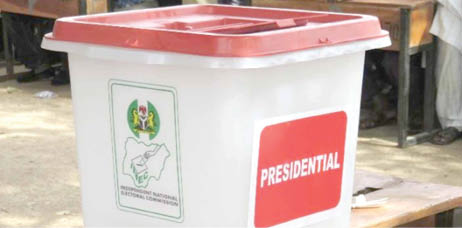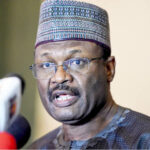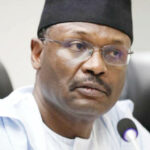The conduct of off-season elections in Edo and Ondo states by the Independent National Electoral Commission (INEC) has generated mixed reactions. Some observers agree that the elections have built on the initiatives introduced by the electoral umpire for the 2023 general elections, suggesting how the gains of these initiatives can be carried over into future elections.
Some factors which were identified to have played significant roles in these gains include the concentration of security agents and resources from INEC itself in one place as against what is obtainable during the general election. They also identified the concentration of observers and CSOs, which ensures more real-time updates and assessments, preventing politicians, who have been identified as the main obstacles to credible elections, from disrupting the processes.
While the electoral umpire still has three more off-season governorship elections (in Anambra, Osun, and Ekiti states) before the next general elections, attention is gradually shifting towards the 2027 presidential election where the stakes are higher.
Following the outcome of the 2023 presidential election, expectations are high for the commission to replicate the relative successes recorded in off-season polls, particularly in the deployment of the Bimodal Voter Accreditation System (BVAS) and the INEC Result Viewing Portal (IReV).
- Rivers can receive monthly allocation – Appeal Court
- Activation of adopt-an-athlete programme by NSC commendable
Recall that INEC first deployed IReV for the Nasarawa Central by-election in 2020. In 2021, it deployed BVAS as a means of overcoming the challenge of overvoting by accrediting voters through fingerprint, iris, and facial recognition and eliminating manual voter identification and accreditation. At the time, BVAS was replacing card readers that had failed to read permanent voter’s cards properly.
Although some of these technologies, especially the IReV, fell short of expectations during the 2023 general elections, especially in the presidential election, as boldly admitted by INEC itself when it blamed it on ‘glitches’, observers note improvements in subsequent off-season elections. But the concerns remain on how this improvement would measure up when the stakes become higher especially when the attitude of politicians to elections in the country has continued to be a do-or-die, winner takes all; thereby placing more pressure on the electoral umpire.
Observers referenced the recently conducted general elections in Ghana as a lesson that Nigerian politicians must be advised to adopt. Vice President Mahamudu Bawumia of the ruling New Patriotic Party (NPP) calling to concede defeat to John Dramani Mahama of the opposition’s National Democratic Congress (NDC) even before the electoral umpire’s formal declaration, was considered a pivotal moment in the election.
Professor Mahmood Yakubu, the Chairman of INEC, who was in Ghana as an observer, noted the political stability inherent in Ghana’s democracy, and the consistency of its political party structures and voter loyalty.
Experts thus suggested that for INEC to build on its successes, it must find better ways to partner with agencies like the National Orientation Agency to come up with ways to change the do-or-die attitude of politicians. They believe the electorate must also be sensitised to see beyond politicians’ perception that “an election is only credible if it favours my party”.
‘Role of politicians often underemphasised’
Buttressing this viewpoint, Dr Suleiman A. Suleiman, Executive Director of the Centre for Media Policy and Accountability (CMPA), argued that politicians bear the primary responsibility for undermining Nigeria’s electoral process.
He said experts have identified the negative role of politicians as a significant obstacle to credible elections. “They are the ones who bribe voters to buy votes. They are the ones who conduct fake primaries or use money to buy delegates. They are the ones who do everything to scuttle the elections. And above all, they are the ones who attack the integrity of the elections, mostly without evidence, just because they lost,” Suleiman said.
He drew parallels with recent events in the United States, warning that baseless claims of electoral fraud could erode democratic principles. “Yes, there’s always room for improving even the best electoral systems, but when politicians refuse to accept defeat, that poses greater dangers than any deficits in the elections,” he said.
Suleiman called for greater public scrutiny of politicians, urging voters to demand accountability and decency. “For example, how is it possible for candidates who came second and third in an election to both claim they won the election? Nigerians must focus on the attitude of politicians and demand some measure of decency in their conduct during and after elections,” he said.
‘Complacency a key challenge for lessons learnt’
Sharing her thoughts, Dr Mufuliat Fijabi, Executive Director of the Sustainable Gender Action Initiative (SGAI), noted that off-cycle elections have remained a learning point for Nigeria’s electoral process.
“The off-cycle elections serve as an opportunity to operationalise new tools and procedures that will deepen our electoral process. I think it would be fair to say that INEC has taken on new lessons from these elections in the management of general elections,” she said.
However, Fijabi cautioned against complacency, noting the differences in scale between off-season and general elections.
“The number of voters and electoral requirements in off-cycle elections are not the same as in general elections. INEC needs to contextualise the lessons learned, ensuring that they double their efforts to accommodate the scale and complexity of a nationwide election,” she added.
Aside the issue of complacency, it has also been observed that logistical challenges remain a significant hurdle for INEC.
While commending INEC’s improvement on logistics and results management in the last two off-cycle elections, Mark Amaza, a Senior Communications Officer at Yiaga Africa, emphasised the need for deliberate efforts to extend these gains to general elections.
“It requires intentionality from INEC to translate off-cycle election successes to general elections. This means being intentional in getting logistics, training of ad-hoc staff, electoral technology, security, and results management right,” he stated.
To bolster INEC’s capabilities, Amaza suggested the appointment of national commissioners with expertise in key areas such as law, logistics, technology, and security.
Also, Comrade Ibrahim Zikirullahi, Executive Director of the Resource Centre for Human Rights and Civic Education (CHRICED), highlighted the challenge of the complexities of general elections compared to off-cycle elections as a recurring issue, urging INEC to improve its planning and resource allocation.
He also noted that off-cycle elections require fewer personnel, allowing for better coordination and resource management. “The limited scope of off-cycle elections enables the mobilisation of more security operatives, reducing election-related violence and ensuring smoother processes,” he explained.
INEC commits to improvement
Rotimi Lawrence Oyekanmi, Chief Press Secretary to INEC Chairman, defended the commission’s performance, asserting that INEC treats all elections with the same level of seriousness.
“The Independent National Electoral Commission (INEC) approaches every election, be it a general election, an off-season governorship election, by or rerun election, with the required seriousness and dexterity. Every election is important and needs careful planning,” Oyekanmi said.
He detailed INEC’s three-stage electoral process, which includes pre-election, election day, and post-election activities. “We issue a timetable and schedule of activities, implementing them methodically from the beginning till the election day. The major difference between a general election and an off-season election is the scale of the logistics—men and materials—required,” he explained.
Oyekanmi highlighted INEC’s commitment to continuous improvement, stating, “At INEC, we strive to be better. We review our performance after every election and adjust in areas where we find some loopholes. And we have been improving.”

 Join Daily Trust WhatsApp Community For Quick Access To News and Happenings Around You.
Join Daily Trust WhatsApp Community For Quick Access To News and Happenings Around You.


